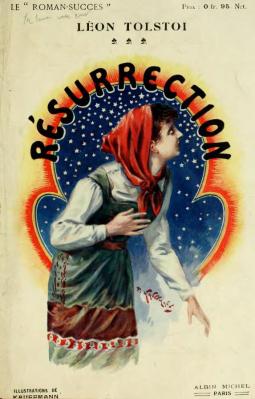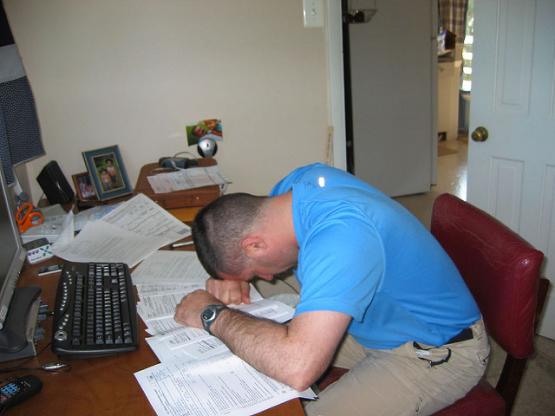 Resurrection (1899)
Resurrection (1899)
By Leo Tolstoy
This late 19th-century novel about nobleman Dmitri Ivanovich Nekhlyudov’s efforts at redemption after a life of sin is Tolstoy’s last major novel before his death in 1910. The readers will have a complex relationship with the tormented protagonist and his desperate attempts at redemption and forgiveness, since Nekhlyudov’s misguided decisions and youthful errors are often not so dissimilar from our own. Resurrection is a scathing exposition of the myriad prejudices of the man-made justice system and the hypocrisy of the establishment, while it also explores the economic philosophy of Georgism – of which Tolstoy had become a strong advocate toward the end of his life. [from the Culture Trip]
Political Economy Book Club discussions are open to everyone interested, without charge, and the text (in English translation) is available free from various sources including archive.org, who also offer a free audiobook. There is also a more recent translation by Anthony Briggs, which can be purchased or licensed in various formats and is available in some public libraries. Any questions about the PEBC may be directed to Convenor Bob Matter,

As farmland yields to “higher-value” uses, how (and how well and how inexpensively) will we eat? Bob Jene reviews data from a leading agricultural preservation organization, the American Farmland Trust (AFT). Among other things they buy development rights from landowners to insure continued farming use, and attempt to facilitate community supported agriculture which makes family farms more viable. A Georgist fiscal reform encourages more conservative and productive use of all land and reduces sprawl, thus preventing encroachment on farmland. An alliance with AFT would benefit us both.

Do we need to suffer like this (and/or pay someone else) in order to fund government? In this presentation, HGS instructor Bob Jene looks at what it costs to collect income taxes. The direct cost to the government of operating the Internal Revenue Service is only a small part, as the burden put on the taxpayer, and the diversion of effort from productive uses, should also be considered.
Once again this year, our colleagues from the Public Revenue Education Council will have a booth at the annual conference of the National Council of State Legislators. PREC travel to the host city each year, and in 2016 they’re at McCormick Place in Chicago.
PREC will want assistance from local people who have completed one or more courses at the Henry George School and understand the fundamentals of political economy, especially land value taxation and the “two-rate” or “split rate” tax. If you might like to help out, contact Chuck Metalitz for more details. Because this conference of public officials is closed to the public, this might be you only way to get into the exhibit hall, and requires pre-arrangement. Only a limited number of these volunteer positions is available.

We’ll gather in a rustic south Evanston back yard [you get the exact address when you RSVP] to commemorate Henry George’s 177th birthday (actually he was born September 2, but that’s inconvenient for most working folks). This year, we’re also celebrating, we hope, the School’s new location (yet to be determined at this writing).
Thanks to the generosity of HGS supporters past and present, everyone who’s completed any HGS course, ever, is welcome to attend without charge. Bring a significant other, or a friend who might find HGS of interest, also no charge. And of course no charge for your minor dependents. We hope to see people who might have taken a course years ago and almost lost touch with us. Come by, meet some of the new students and graduates, as well as the volunteer staff.
There will be food, drink, a lot of conversation and maybe some productive discussion about how to help our community understand how the economy works, the fundamental principles which can be harnessed to bring prosperity and freedom.
PLEASE PLEASE PLEASE let us know by Friday September 2 whether you’ll be coming. It would be great, but not required, if you can bring something to share. Monetary donations are also extremely welcome, and can be made here, or by check to the School, or at the event.
Progress & Poverty, classic version, meets weekly for ten Thursdays thru November 17. First session free, but if you choose to register we request $25 to help with expenses. Optional preregistration. More about the course.
Between 1948 and 1973, Americans’ real wages rose almost as fast as their productivity. After 1973, productivity grew 147% but wages rose only 19%. This raises two questions:
(1) If workers getting less, who is getting more?
(2) Is there a way to restore the balance?
To solve the problem of poverty, and the many other problems that follow from it, ordinary workers need higher wages. George Menninger describes how to raise wages without interfering in the free market and without taking anyone’s earnings.
George Menninger is an instructor at the Henry George School of Chicago, and attendees at this free program will have the opportunity to sign up for his Progress & Poverty course.
You can sign up for this free event thru Eventbrite, or RSVP directly by email.
In the 19th Century, Henry George proposed to end poverty by recognizing a clear and logical distinction between private property and community property. America took a different path, but George’s proposal remains valid and would still provide widespread prosperity. Chuck Metalitz explains.
Attendees at this free event will have the opportunity to sign up for the Progress & Poverty course which examines these ideas in much greater detail.
